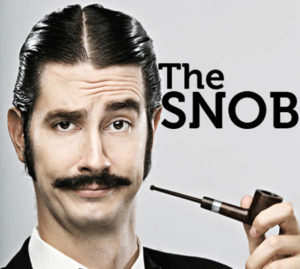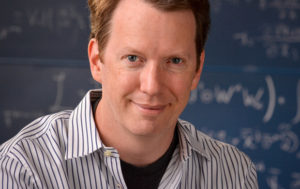A recent article I wrote titled "Anecdotes versus evidence" tried to explain the difference between an interesting story with an extraordinary claim and real evidence of a phenomena obtained via the scientific method. Quite predictably, there was a critic lurking on social media who wanted to challenge the crux of the article without bothering to evaluate the content. In the article I had listed three specific examples of extraordinary claims that apparently could be evaluated using credible scientific evidence proving beyond reasonable doubt that strict materialism was false, and that the metaphysical mind can learn new information even when temporarily separated from the physical brain. The idea behind writing the article was to provide the information and people who disagreed with me could fairly evaluate the same evidence and argue my interpretation of what the evidence meant. This critic merely assumed the evidence to which I referred was no better than any other alleged evidence he'd ever seen, and refused to look at the evidence I had offered. Instead, he wanted to challenge my methodology so he could downgrade the evidence back to only anecdote. My answer was quick and easy: I had actually looked at the evidence. I didn't just make an assumption. The direction of his line of inquiry soon became clear: my critic wanted me to acknowledge that I was simply taking the word of witnesses as gospel truth without questioning their veracity. That will only work if we apply the same standard in every situation. How do we know anything is true? The reality is … [Read more...]
Anecdotes versus evidence
A strict materialist believes that our existence is limited to our physical bodies. They do not believe in God, Satan, heaven, hell, life after death, the near death experience, ghosts, angels, demons, spirits, souls, or any sort of supernatural phenomena. Not every atheist is a strict materialist, but by definition, strict materials are always atheists. To which I say, fine. Believe whatever you want, because you have free will. It isn't my job nor my responsibility to change your mind. As long as you can refrain from making any claims about the superiority of your beliefs over mine, we'll get along just fine. When a strict materialist makes an epistemic claim, it is typically their own personal belief incorrectly presented as fact. Whenever that situation occurs, I must offer strenuous objections because anecdotes should never be confused for scientific evidence and of all people, the strict materialist should already know this because they've told me as much on countless occasions. Personal beliefs should never be argued to be indisputable facts. Anecdotes might be interesting stories, but they will never be evidence to you unless they are your stories culled from your own personal experience and observation. If I tell you that I saw something, it's merely an anecdote. However, if you personally witness an event, it is your personal experience, and observation is a key component of the scientific method. Conversely, if you tell me that you saw something, it is still only an anecdote. However, if I observe the same thing you do, I have become a corroborating … [Read more...]
Vincible Ignorance
Physicist Sean Carroll An article at American Thinker about conspiracy theories and the moon landing caught my attention when the term vincible ignorance was introduced and defined as the "stubborn resistance to the truth and refusal to accept it, no matter how overwhelming the evidence in its favor is." Coined with the intention of being applied to various positions on Catholic dogma, the terminology has useful application in a more secular context. Invincible ignorance has been defined as an unknown that can never be known. A secular example of invincible ignorance might be the conditions that existed prior to the Big Bang singularity--we "know" the universe had an origin because we've been told evidence for the Big Bang exists, called redshift and cosmic microwave background radiation (CMB). The consensus of physicists (although consensus is not science) is that a very small, highly condensed dot of material rapidly expanded to become this universe. We don't know what existed prior to the Big Bang. We can only guess and speculate. It would be an example of vincible ignorance to know about redshift and CMB evidence and still reject the Big Bang evidence in favor of the steady state (eternal, unchanging universe) hypothesis. While similar to the phrase I began using a while ago, the subtle difference between vincible ignorance and willful ignorance is knowing and rejecting the truth as opposed to simply avoiding it. The distinction appears to be useful, to be sure. For example several years ago, while participating on an internet panel to discuss his … [Read more...]
Quantum memories
Michaela Chatterjee A pleasant family vacation ended abruptly with an unpleasant outcome for seventeen-year-old Michaela (Roser) Chatterjee. In the blink of an eye, a relaxing drive back home turned into a horrific car accident, followed by the chaotic scramble of a life flight via helicopter to emergency surgery. Another driver had panicked at the sight of oncoming traffic while trying to pass on a hill and smashed into the family vehicle, forcing them under the trailer of an eighteen wheeler. Three medical evacuation helicopters and five ambulances were called to the scene. Michaela’s injuries were by far the most serious. Her facial wounds looked particularly gruesome. A deep laceration extended across her forehead and ripped into her right eyelid, exposing two inches of skull and her eyeball. Her bicep was completely severed when her left arm smashed through the rear windshield. As a result, Michaela had gone into shock. The force of impact had been so great that she suffered a diffuse axonal injury to her brain, meaning her brain literally sheared and twisted inside her cranium, creating a blood clot. Fortunately for Michaela, the accident occurred only two miles from the personal residence of emergency room physician Scott Magley. He arrived at the scene and began administering first aid. Michaela flat lined on the flight to the hospital despite Dr. Magley’s best efforts to save her. Michaela was so badly injured that Dr. Magley was able to intubate her without anesthesia. Due to the severity of her brain injury, she remained … [Read more...]



